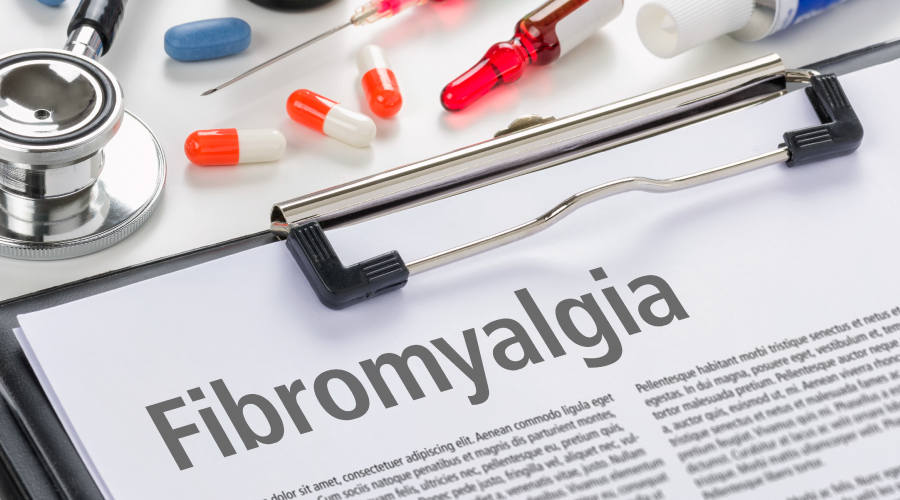

Fibromyalgia is a long-term health condition that causes pain all over the body. Many people live with it for years without knowing what’s wrong. It can make everyday life very hard. Even though it doesn’t damage the body like some other illnesses, the pain and tiredness can be very real and tough.
Doctors are still learning about fibromyalgia, but one thing is clear: it’s not just “in the mind.” It affects real people with real problems. This blog will help you understand what is fibromyalgia, what causes it, how it affects the body, and how you can manage it with fibromyalgia treatment naturally or with help from doctors.
What is Fibromyalgia?
Fibromyalgia is a syndrome, which means it’s a group of symptoms that happen together. The main sign of fibromyalgia syndrome is pain all over the body, but there are other symptoms too. The pain is usually there all the time and can move from one place to another.
It is more common in women than in men. In fact, about 80% to 96% of fibromyalgia patients are women. According to a study published in the Indian Journal of Rheumatology, 2.8% of the Indian population is suffering from fibromyalgia.
Fibromyalgia Symptoms
Fibromyalgia symptoms don’t look the same in everyone. But here are the most common symptoms:
- Long-lasting pain all over the body
- Feeling very tired even after a full night’s sleep
- Trouble sleeping
- Problems with memory or thinking clearly (also called “fibro fog”)
- Headaches
- Stomach pain or bloating
- Feeling low or anxious
Some people also get numbness in their hands or feet, and some feel dizzy.
How Fibromyalgia Affects the Body
Fibromyalgia doesn’t cause swelling or damage in the joints, but it does change the way the brain and nerves work. The brain becomes more sensitive to pain signals. So things that wouldn’t hurt other people may hurt a lot for someone with fibromyalgia.
Here’s a table to show how fibromyalgia affect the body parts:
| Body Part | What Happens |
| Muscles & Joints | Constant pain, stiffness |
| Brain | Memory problems, trouble focusing |
| Stomach | Bloating, diarrhoea, or constipation |
| Sleep System | Poor sleep, feeling tired all day |
| Emotions | Anxiety, sadness, stress |
Fibromyalgia Causes
Doctors don’t know exactly what fibromyalgia causes are, but they believe a mix of things might trigger it:
- Stress or trauma– like a car accident or emotional shock
- Infections– some illnesses can start it
- Genes– it can run in families
- Hormonal changes – such as during menopause
The nervous system seems to become overactive and reacts strongly to pain signals.
Is Fibromyalgia an Autoimmune Disease?
Many people wonder: Is fibromyalgia an autoimmune disease? The answer is: No, fibromyalgia is not an autoimmune disease. In autoimmune diseases, the body attacks itself by mistake. This doesn’t happen in fibromyalgia. However, it often exists along with autoimmune conditions like lupus or rheumatoid arthritis.
Is Fibromyalgia Autoimmune or Neurological?
Now the next question is if it is not autoimmune, then what it is? Many people get puzzled and ask is fibromyalgia autoimmune or neurological. It’s a tricky question, but the answer might surprise you! Fibromyalgia is not autoimmune, but it is believed to be neurological. That means it is linked to the nervous system, the brain, and nerves. The brain sends stronger pain messages than normal, even when there’s no clear reason for pain.
How to Get Diagnosed with Fibromyalgia?
Getting diagnosed with fibromyalgia is not always easy. There’s no single test for it. If you’re wondering how to get diagnosed with fibromyalgia, doctors usually check for fibromyalgia if you’ve had:
- Pain in many parts of the body for more than 3 months
- Trouble sleeping, tiredness, or thinking clearly
- No other health problem to explain the symptoms
You may need blood tests or scans to rule out other illnesses, like arthritis or thyroid problems.
Read More: Top Strategies for Sore Muscle Pain Relief: Feel Better Fast!
How Do You Treat Fibromyalgia?
There is no full cure yet, but many fibromyalgia treatments can help manage the symptoms. Some options include:
- Medicines– such as painkillers or antidepressants
- Exercise– like walking, swimming, or stretching
- Talking therapies– such as cognitive behavioural therapy (CBT)
- Relaxation techniques– including yoga, deep breathing, and massage
It’s important to try different things and find which fibromyalgia treatment works best for you.
How to Cure Fibromyalgia Naturally
While there’s no known cure, many people use natural methods to feel better as they may help reduce the pain and improve energy. Here are some tips on how to cure fibromyalgia naturally:
- Eating healthy foods – fresh fruits, vegetables, whole grains
- Reducing sugar and caffeine
- Getting regular sleep – going to bed and waking up at the same time
- Doing gentle exercise – like walking or yoga
- Taking magnesium or vitamin D (check with a doctor first)
- Trying herbal remedies – such as turmeric or ginger
- Practising mindfulness and meditation
Conclusion
Fibromyalgia is a real and often misunderstood illness. It affects millions of people around the world. While it’s not autoimmune, it is a complex neurological condition that can change how the body feels pain. It may not be easy to live with, but the good news is that there are many natural fibromyalgia treatments to manage it.
With the right support, and knowledge about how do you treat fibromyalgia, and self-care, people with fibromyalgia can live full and happy lives. If you think you may have fibromyalgia, don’t wait—talk to a doctor and get the help you need.
Frequently Asked Questions About Fibromyalgia
Q2. How to cure fibromyalgia naturally?
There is no full cure for fibromyalgia, but natural ways can help manage it. Gentle exercise, healthy food, good sleep, and stress relief like yoga or meditation can make you feel better.
Q3. Can stress make fibromyalgia worse?
Yes, stress can make fibromyalgia symptoms feel worse. Relaxing the mind and body can help reduce pain and tiredness.
Q4. How does fibromyalgia affect the body?
Fibromyalgia causes pain all over the body, along with tiredness and trouble sleeping. It can also make you feel stiff, or sensitive to touch, light, or sound.
Q5. How do you treat fibromyalgia?
Fibromyalgia is treated with doctor recommended medicines, gentle exercises, and good sleep and stress habits. Talking therapy and healthy routines can also help you feel better.
Q6. How to get diagnosed with fibromyalgia?
To get diagnosed with fibromyalgia, visit a doctor who will ask about your pain, tiredness, and other symptoms. They may do blood tests to rule out other problems, as there is no single test for fibromyalgia.




